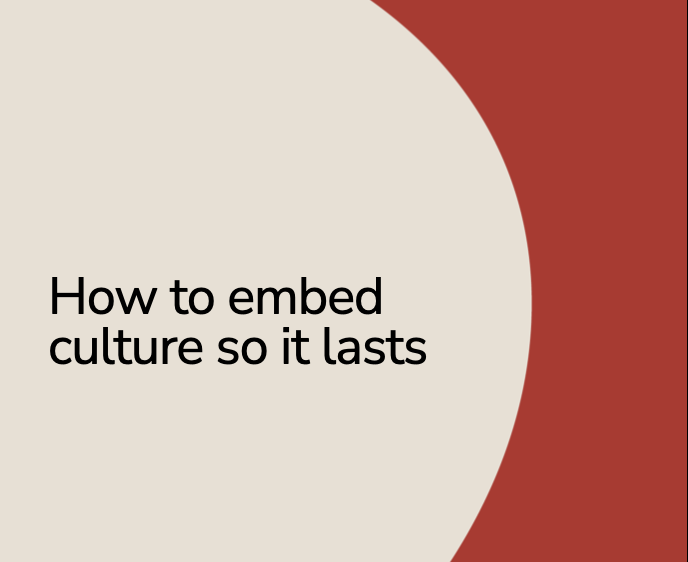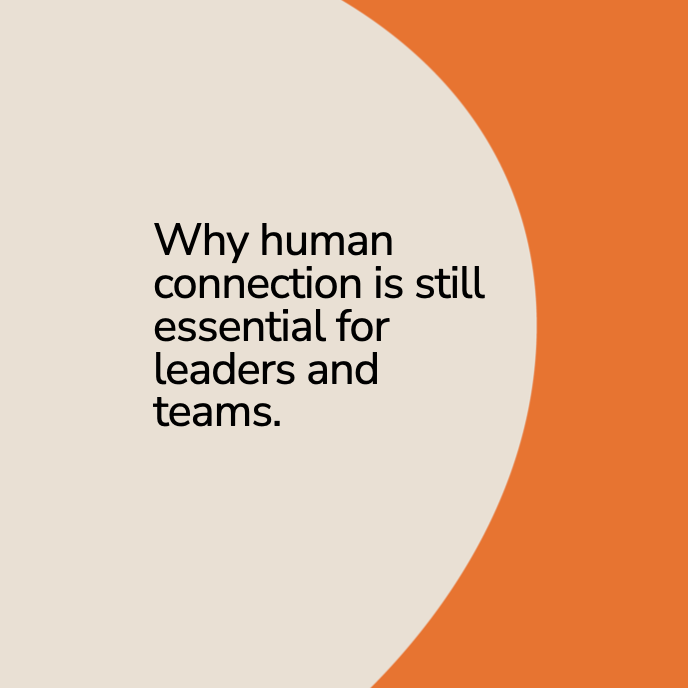How to embed culture so it lasts
Culture change doesn’t happen overnight. It’s built through daily actions, consistent communication and small behaviour shifts that add up over time.
This article explores how to embed culture across the employee lifecycle, from recruitment and onboarding to communication, recognition and performance management, so it becomes part of everyday working life.
Why human connection is essential for leaders and teams.
“As machines get better at being machines, humans have to get better at being more human.”
This article explores why trust, compassion, and connection are now the true differentiators for leaders and teams in an age of AI and dispersed work.
Do I need a Facilitator for my Away Day or Offsite?
Team away days, off-sites, leadership strategy, brand or culture workshops can be brilliant opportunities to reconnect, realign and refocus your people. But how do you make sure that they don’t feel like a waste of time and that you create meaningful impact and tangible results?
This article explores the benefits of using an external Facilitator to design and run your meeting.



